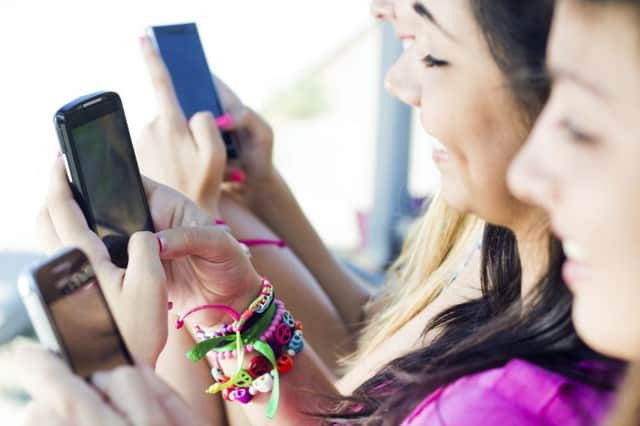Kids losing social skills due to smartphones


Researchers discovered that depriving 11 and 12-year-olds for just five days of all digital media – including television – left them better able to read other’s emotions.
The study’s senior author, Patricia Greenfield, Professor of psychology at the University of California Los Angeles, said: “Many people are looking at the benefits of digital media in education, and not many are looking at the costs.
Advertisement
Hide AdAdvertisement
Hide Ad“Decreased sensitivity to emotional cues, losing the ability to understand the emotions of other people, is one of the costs.
“The displacement of in- person social interaction by screen interaction seems to be reducing social skills.
“Social interaction is needed to develop skills in understanding the emotions of other people.”
Psychologists studied two sets of 11 and 12-year-olds from the same school, 51 who lived together for five days at a nature and science camp, and 54 others.
The camp bans students from using electronic devices, a policy that many students found to be challenging for the first couple of days but then adapted to quickly.
At the beginning and end of the study, both groups of students were evaluated for their ability to recognise other people’s emotions in photos and videos.
The students were shown 48 pictures of faces that were happy, sad, angry or scared, and asked to identify their feelings.
They also watched videos of actors interacting with one another and were instructed to describe the characters’ emotions.
Advertisement
Hide AdAdvertisement
Hide AdStudents participating in the study reported that they text, watch TV and play video games for an average of four-and-a-half hours on a typical school day.
The children who had been at the camp improved significantly over the five days in their ability to read facial emotions and other non-verbal cues to emotion, compared with the students who continued to use their media devices.
The findings, published in the journal Computers in Human Behaviour, applied equally to both boys and girls. Study co-author Dr Yalda Uhls, a senior researcher with the UCLA’s Children’s Digital Media Centre, said: “You can’t learn non-verbal emotional cues from a screen in the way you can learn it from face-to-face communication.
“If you’re not practicing face-to-face communication, you could be losing important social skills. Emoticons are a poor substitute for face-to-face communication. We are social creatures. We need device-free time.”
Prof Greenfield added:” These results are significant, given that they occurred after only five days. The research implies people need more face-to-face interaction, and that even when people use digital media for social interaction, they’re spending less time developing social skills and learning to read non-verbal cues.